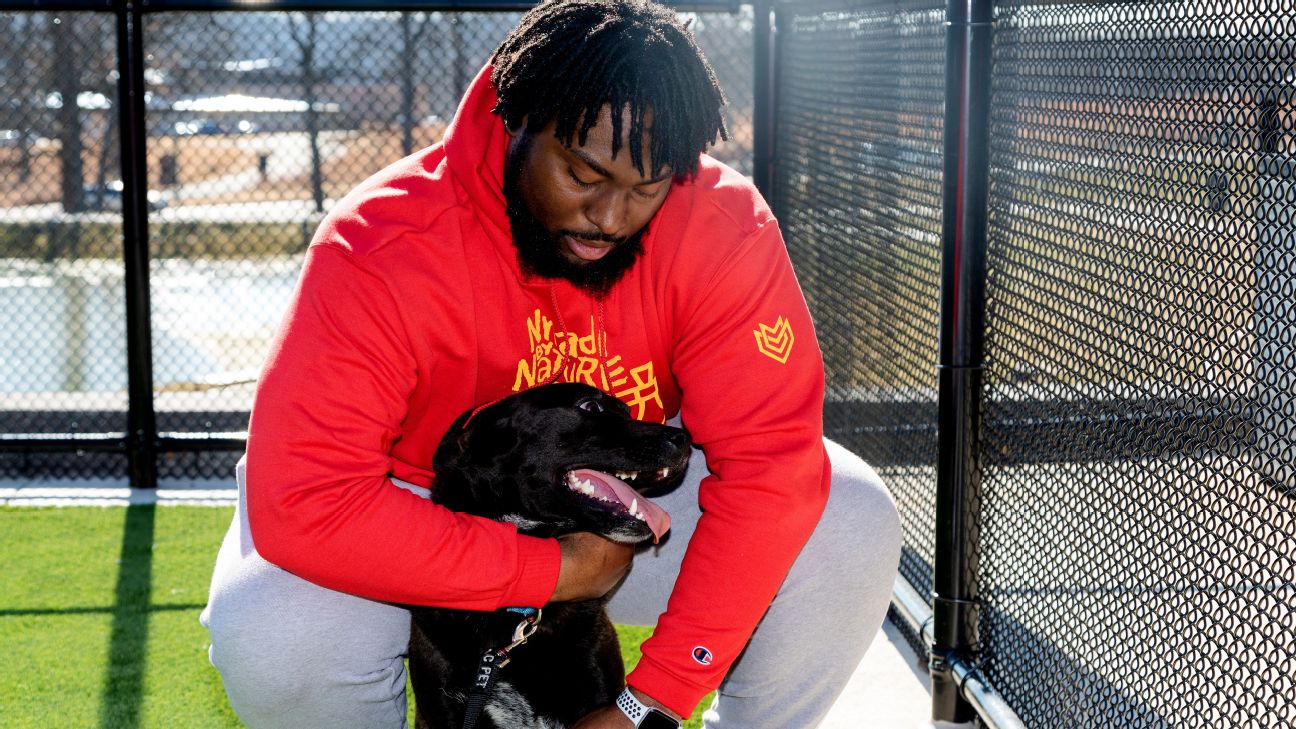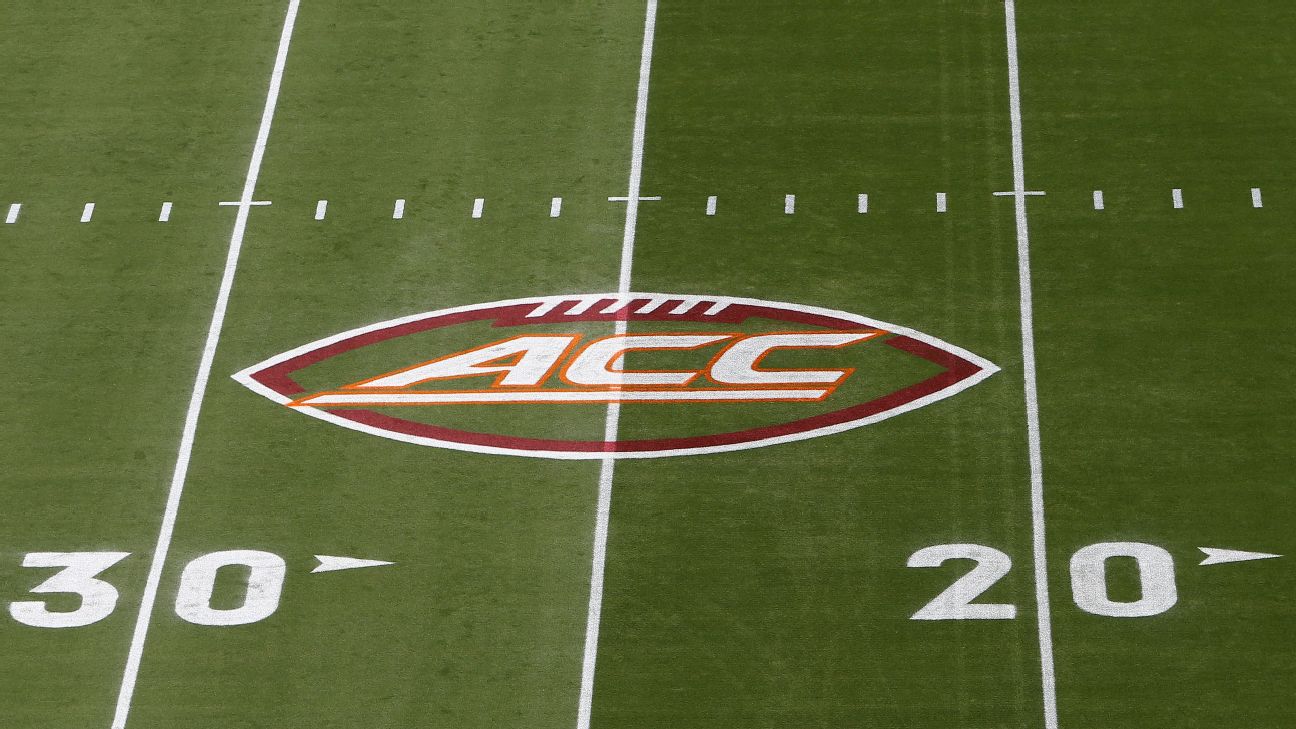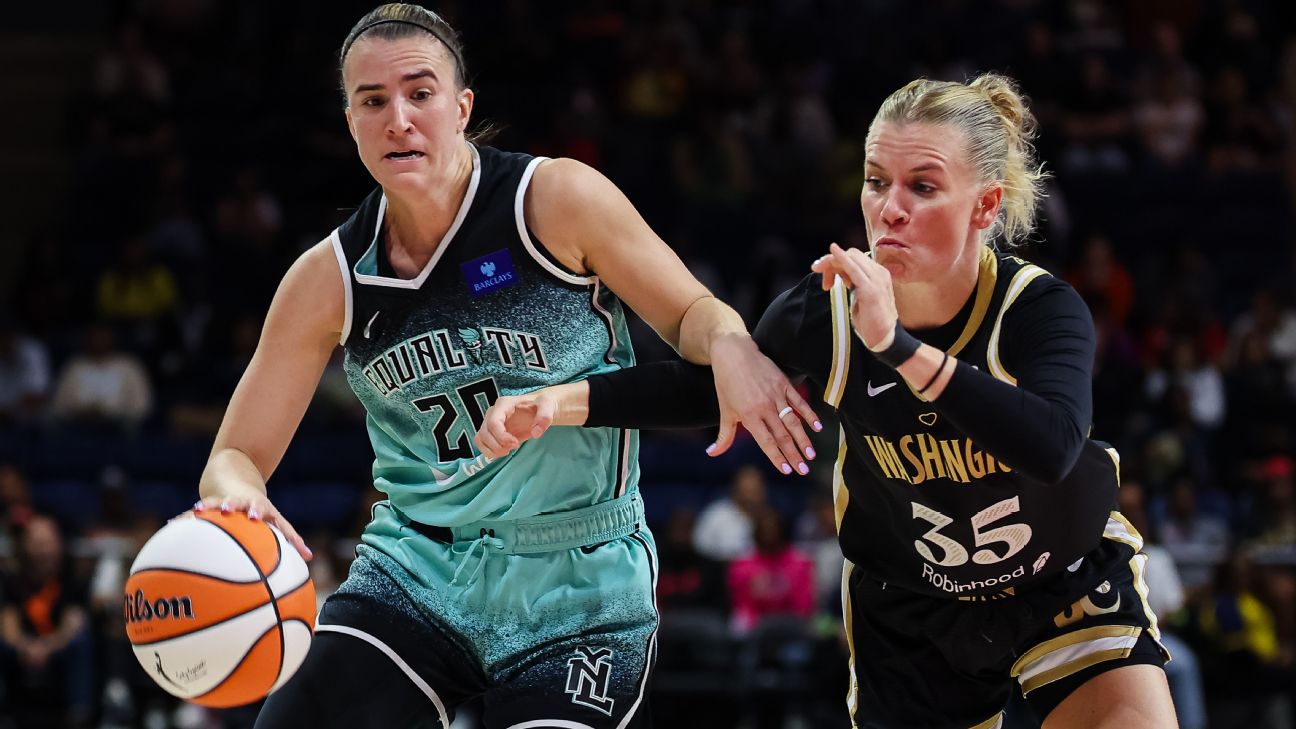Five years of football dominance in Kansas City inspired a spike in dogs named Kelce, and, for the creative types, some feline Catrick Mahomeses. But in Louisburg, Kansas, Shelly Trester and her family went a different route. They named their dog Nnadi.
Derrick Nnadi, a soft-spoken 317-pound defensive tackle for the Kansas City Chiefs, is not one of the splashier names on the team, but he has endeared himself to animal advocates because he rescues dogs. Chiefs coach Andy Reid calls him “the dog whisperer.”
Trester didn’t know much about Nnadi in the fall of 2019 when she spotted a fluffy white shelter dog online, the perfect companion for their dog Chloe. She went to the Kansas City Pet Project shelter to meet that dog, only to be sidetracked by a pair of sad eyes staring at her in a dark kennel near the door.
That dog’s name was Rusty, and he was neither floofy nor perfect. When Trester asked to see him, the dog was so excited that a young shelter worker could barely keep hold of him on the leash. He ran and played fetch and laid his head on Trester’s lap. Someone at the shelter snapped a photo of them. The dog was smiling wider than Trester.
She wanted him even more when she heard his backstory. He’d been surrendered to the shelter three times: once as a littermate, another time when his leg was severely infected and his owner couldn’t afford to pay for the vet bill. The last owner, Trester was told, didn’t keep him because Rusty had a lot of energy and was locked in a bathroom for long periods of time.
“I just didn’t want to leave that place without him,” Trester said. “I wanted to bring him home and take care of him.”
She told the shelter she’d take him, and one of the workers whispered that if Trester waited until Sunday, the dog would be free because Derrick Nnadi was sponsoring the dog as part of what was, at the time, a new promotion at the KC Pet Project. With every Chiefs win, Nnadi, then a second-year player, would pay the adoption fees of a hard to place shelter dog, and Rusty, of course, fit that category. But Trester didn’t want to wait. She purchased an armful of toys to make up for the $150 adoption fee and drove the dog 40 minutes home to Louisburg.
Her family did not immediately embrace her decision. Trester’s youngest daughter, Jordyn, wanted a lap dog. She cried when her mom brought him home, first in frustration, then pity.
“You went out and got a three-legged dog?” was her husband Jason’s response, minus the expletives.
But by nighttime, when the dog hopped into bed with Jason and Shelly, everyone was gaga over the pointy-eared pooch. Jason wanted to name him Lieutenant Dan, after the character whose legs were amputated below the knees in “Forrest Gump.” But after watching the mischievous dog dash through their expansive yard, their son Dylan came up with the most appropriate name — Nnadi, which is pronounced “naughty.”
A few months later, the Chiefs beat the San Francisco 49ers 31-20 in Super Bowl LIV, their first championship in five decades. And Derrick Nnadi pledged to pay for the adoption of all the dogs available for adoption in the shelter, all 109 of them. On a cold February day, a long line formed at the KC Pet Project to adopt a Nnadi dog. He cleared the shelter.
It started a movement. A beer company, inspired by Nnadi’s story, donated $100,000 toward dog adoptions throughout the United States, and Rachael Ray gave away a year’s worth of her line of dog food to each of the pups. Nnadi’s deeds were featured in People Magazine and on ABC News, which panned to rows of empty kennels.
“It elevated him to a really unique platform,” said Tori Fugate, the shelter’s chief communications officer, “and they still just love him for this reason. I had a couple come in from out of town, and I asked them, ‘What drove you to come in?’ They said, ‘Well, we saw that the Chiefs player supports it.'”
Four years and one pandemic later, the KC Pet Project is overflowing with shelter animals and posted last week on its Facebook page that it was in a space crisis “bursting at the seams with dogs in need.” Difficult meetings are held about at-risk dogs, kennel space and euthanasia.
The overcrowding is happening on a much larger scale, too. According to Shelter Animals Count’s national database, shelters throughout the United States are in their fourth year of having too many animals with fewer adoptions and higher shelter intake, especially with dogs. The non-profit organization’s data show that shelter animal deaths, including euthanasia and deaths in care, are up 31% from 2022, and 85% from 2021.
Kansas City, where Fugate said 70% of its residents own pets, is grappling with soaring housing and rent prices, eviction rates and, consequently, dog abandonments.
“It’s gotten a lot harder for animals here,” Fugate said.
“Everywhere.”
DERRICK NNADI HAS sponsored the adoptions of more than 500 dogs in the past four years, many of which did, or could have, fallen into the “at risk” category, meaning they were candidates for euthanasia.
In other words, Nnadi tries to adopt dogs most people don’t want.
There’s a pit bull living in central Iowa that is a Nnadi dog. Matt Zager, who drove three hours to Kansas City to adopt the dog, is a Chiefs fan but was more compelled to take the dog because of a Facebook post he saw about “Lita.”
Zager said the dog was found tied to a fence and dumped off at the shelter. She’d had a few litters of puppies, Zagers said, and he wondered whether someone used her for breeding, and “probably just didn’t want to deal with it anymore.” The dog was on KC Pet Project’s endangered list, he was told, because she wasn’t eating in the kennel and was emaciated.
Adding to Lita’s placement issues, she was “reactive” to female dogs. Zager has an American bulldog named Charlie, and he brought him to Kansas City for a meet and greet with Lita.
“They got along together,” he said, “no issues, no problems. She was what we were looking for. She’s the sweetest thing.”
If you look closely, Zager said, the splotches on Lita’s nose align to make the shape of a heart. She is a good conversation piece when Zager is entertaining friends.
“It’s kind of neat,” he said. “We say, ‘This is one of the dogs that was sponsored by a Chiefs football player,’ and now we can say, ‘By the Super Bowl champs.'”
Walk into the KC Pet Project, a sprawling 54,000-square foot facility with “catios” and music pumping through the animal holding centers, and Nnadi’s presence is everywhere.
A window of a yellow-painted room says, “Put your paws up for Kansas City,” with one of those paws holding a football. There’s a white dog with a pirate-eye splotch named Stevros staring out a window with a Chiefs arrowhead and the words, “KC loves doggos.”
Nnadi has spent the past three winters not knowing where he’d play, eventually signing one-year deals that are basically team-friendly, and didn’t play in Kansas City’s Super Bowl victory this past February because of an injury. But he is a beloved Kansas Citian, as a result of those 500-plus chances he’s provided.
GROWING UP IN Virginia Beach, Nnadi said, dogs used to chase him. One day, on his way to elementary school, a dog was particularly persistent. The dog started following him on his route, and when he took a different way, there it was.
It was almost as if it was watching over him, he said.
“He would approach, but he wouldn’t advance,” Nnadi says. “I’m like, ‘OK … I guess we’re cool. I guess I’ll see you later.’ I go to class, walk back home, and the same dog is there. At this point I’m like, ‘All right, where are your parents?’ I guess it’s just a dog’s world and I’m in it.
“So I see him again, give him a little pet. After that, I was just cool with dogs.”
Dogs weren’t allowed in the Nnadi house. His mom was afraid of them, he said, because her parents were attacked by dogs when they lived in Nigeria. So Nnadi would help raise his friends’ dogs, walking them and teaching them tricks.
He liked pit bulls because those were the dogs his friends had. He admired the athleticism of the breed, and the dogs’ loyalty to their owners. Pit bulls, which are recognized as a breed by some but not all kennel clubs, are thought to be descendants of bulldogs and terriers. They are associated with dogfighting — in 2007, former NFL quarterback Michael Vick pleaded guilty to federal charges in connection with a dogfighting ring and was sentenced to 23 months in prison. Some cities have banned pit bulls out of fear that they are aggressive and dangerous. Defenders of the dogs say those fears are misguided.
Nnadi has two pit bulls, and believes the dogs are stigmatized because of bad owners, not bad dogs.
Just before his senior year at Florida State, Nnadi got his first “official” dog, an eight-week-old pit bull puppy he named Rocky. Nnadi made a bed for him in his kennel, and doted over the dog that helped him through the ups and downs of his final collegiate season.
Florida State went 7-6 that year, and coach Jimbo Fisher resigned after a victory over Florida in late November. Nnadi earned a reputation as a disruptive force on the defensive line, but a poor performance in the NFL combine left many questions heading into the 2018 draft. The Chiefs traded with Baltimore to move up to the No. 75 overall pick and drafted Nnadi.
He balanced football training with dog training. Nnadi said Rocky’s seller had kept the puppies isolated from human contact out of fear that someone would steal them, which made the dog timid. Everything scared him, and when they’d go for a walk, something inevitably would make him skittish. It made Nnadi think of other dogs that were scarred from traumas and languishing in shelters.
“The whole reason I started the foundation is really because of Rocky,” he said. “It made me feel bad for him, but it also made me feel empathetic for a lot of the animals that are in shelters.
” … Some of them just kind of look depressing for dogs. They’re just sitting there waiting, waiting; some dogs coming back and forth countless times. Getting out of the shelter, going back in the shelter, and it’s got to be tough. I always try to give at least an opportunity [for them] to have a second chance.”
His rookie NFL season, Nnadi started in 11 games and had 35 tackles. He also acquired another pit bull puppy. Saint is Rocky’s alter-ego. Nothing scares him. The dog quickly learned how to open the windows in Nnadi’s car, which forced him to deploy child locks. Saint also likes to snack on Nnadi’s UGGs. Nnadi tells himself that a tired dog is a happy dog, so he does everything possible to put the dog to work so he’ll wear himself out.
“Don’t even get me started on walks with Saint,” he said. “It’s not a regular walk. It’s what I call a walk of death. He wants to explore everything.
“He likes to lead the pack because he wants to see everything. So I’m like, ‘Go ahead, get your energy out. This is your time.'”
LAST WEEK IN Overland Park, Kansas, just over the state line, the Great Plains SPCA took in a pair of Great Danes found abandoned in a hotel room. Overland Park doesn’t deal with the housing constraints of many Kansas Citians, but area shelters are still often jammed.
Tam Singer, chief executive officer of the Great Plains SPCA, said they could build shelters to house 10,000 animals and they’d still be overflowing. They take in dogs from the KC Pet Project when it’s feasible and deal with their share of returns. In one recent span, she saw six different dog owners return their pets within 24 hours of adoption. The reasons? The dog was barking, or the puppy got sick, which Singer said are common occurrences when an animal is put in a new environment.
“There just seems to be an overall lack of patience with pets,” Singer said. “Especially dogs.
“I just think we see less tolerance in the media, we see less tolerance online. And that’s hard because we can’t really fix that. … If you come to our shelter, you’d be blown away by the steps we do to try and prepare people. I can tell you it takes three months for a pet to settle in. But whether you believe me, it’s another deal. It’s like when a personal trainer comes and says, ‘Hey, you want to lose weight? Eat less, do more exercise.’ Most of us are like, ‘Is there a third option?'”
Singer called the shelter crisis a community issue that has shown up on shelters’ doorsteps. To help stem pet overpopulation, last year Singer set up the Spay/Neuter Collaborative of Kansas City, which holds weekend community-wide free clinics throughout the area.
While the start of the COVID-19 pandemic prompted mass pet adoptions throughout the United States, experts don’t believe the current shelter crisis was solely caused by owners returning pets when they went back to work. The run on dogs, they say, caused breeders to produce more puppies. A veterinarian shortage didn’t help, either. Prices increased to spay, neuter and care for pets.
Shelter Animals Count says 6.5 million cats and dogs entered shelters in 2023. According to the database, of the animals in shelters and rescues last year, 4.8 million were adopted. Stephanie Filer, executive director of Shelter Animals Count, said cats have been somewhat easier to adopt because they are lower maintenance and less expensive to care for.
Large dogs wait longer than small dogs to be adopted, and perhaps one of the more surprising shelter trends is the variety of dog breeds. Old status-symbol dogs such as French bulldogs, golden doodles and other designer dogs are showing up in shelters, she said. Breeder dogs can now be bought online, and even financed.
“Right now we’re balancing this Amazon Prime society where we decide we want something and we decide we need it within 48 hours,” Filer said, “and in a lot of cases, online dog sellers are able to accommodate that. [Society has] really lost the appeal and pride of being able to say that, ‘I adopted my pet from a shelter or an animal rescue.’ Where even a decade ago that was really a prideful thing.”
That’s why Filer appreciates what Nnadi is doing. She called his promotions “transformational in saving animal lives.” The 500-plus Nnadi dogs might seem like a drop in the bucket with more than 3 million dogs in the shelter system each year. But saving an animal, she said, opens a spot at a shelter for another dog. Adopting a shelter pet, Filer said, creates a larger lifesaving ripple effect.
If more athletes and celebrities served as a voice for animals in their community, Filer said, the results would be profound.
“I was living in Iowa City at the time,” Filer said of Nnadi’s 2020 clear-the-shelter event. “I just thought it was the coolest thing. I wished we had a pro team in Iowa at the time.”
ANOTHER DOG STORY: There’s a Missouri resident named Rich, who did not want to use his last name, who chokes up during those Sarah McLaughlan ASPCA commercials. Rich admits to having no filter, which is why his wife had to elbow him in November 2019 when they were filling out papers for their new dog and were informed by a young woman at the KC Pet Project that Derrick Nnadi was paying the adoption fees. Rich didn’t know who that was, then the woman told him that Nnadi played for the Chiefs.
“Well, can I pay for the adoption fee,” he asked, “so I don’t owe anyone from that organization anything?”
His wife told him to shut up. He relented and they took the dog home and named her Selena.
Rich is a big sports fan and loves the Kansas City Royals. He also is Native American and takes exception to the organization’s name, the arrowhead logo on their helmets and, most of all, the tomahawk chop that emanates from the stands during home games.
Still, he adopted the Nnadi dog, a mixed breed that has fit in seamlessly with his family. They named her after the late Tejano singer Selena Quintanilla-Perez. Pet names often morph into a dozen nicknames that are used in various situations, and Selena is now known mostly as Nina.
Rich said he’s drawn to underdogs, and that day he saw Nina at the shelter, standing skittish in the back of her kennel, she just seemed unwanted. But now, he said, she’s “big goober.” She likes to cuddle and knows her own space. He talks to her like she’s a person, and she stands there and waits for scritches.
Back in early 2020, when Nnadi cut an $18,600 check for the 109 Super Bowl dogs, the KC Pet Project held a celebration, inviting former Nnadi adoptees. Rich’s family — including Nina — attended and met Nnadi. He never thought he’d do something like that.
“He was generous,” Rich said. “It didn’t seem like a photo op for him. He seemed genuine in that moment, and I appreciate that about people.
“Am I a Chiefs fan because of Derrick Nnadi? No. I’m a Derrick Nnadi fan and wish him the best. … So when I see Derrick have success, or when his name gets mentioned in a broadcast … I kind of perk up a little bit because he seems like a great guy with a great head on his shoulders.”
THERE ARE LIMITATIONS to owning a three-legged dog. The Trester family cannot move into a multilevel house because Nnadi the dog can’t do stairs. They eventually bought a bigger bed that the dog could not scale, which meant he could no longer sleep with Shelly and Jason.
He now snoozes with Jordyn, who is 16.
“He’s my dog,” she said.
She does get annoyed by him sometimes, mostly in the morning when Jason gets up at 4 a.m. to go to work and Nnadi, in turn, wakes her up. One of the reasons Jason initially hesitated adopting a three-legged dog was that he wondered about the dog’s health and limitations.
Those concerns quickly evaporated. Nnadi is still a tank that pulls on his leash so hard that it’s almost impossible for Jordyn to walk him. On a cloudy day in Louisburg last week, the dog sprinted across the yard and played fetch with Jason and Jordyn, proudly resting the ball next to his front leg as he sprawled out on the deck. He appeared to smile.
He was the third in a long line of dogs who were adopted with the help of Derrick Nnadi, and, five years later, the football player still remembers the Tresters and their dog.
“It was a black-and-white dog, and his name was Nnadi,” Derrick said in a recent phone conversation. “And I was like, ‘Yo, this dog is low-key cool’ — three legs and happy as hell, just living and loving life.”
Nnadi will continue to sponsor a dog for every Chiefs win in 2024, and he wants to do more. His dad taught him that their family members don’t receive, they give, and the Derrick Nnadi Foundation has plans to expand upon his work with the Boys and Girls Club of Greater Kansas City and with people who are homeless.
“I just want to have my peace and try to help out like a big brother would,” he said. “A lot of times I look at what’s going on around the world and to see how I can just uplift it in a way.”
The Tresters root for him every fall Sunday. Three of their four children are grown up, but they gather at the house to watch their beloved Chiefs because when they don’t, Shelly said, they lose.
When their favorite football player tackles someone, they jump and scream “Nnadi!” and the dog barks, and maybe the three-legged shelter graduate has some sort of connection with the football player who saves castaway dogs.
They met once, after Super Bowl LIV, with Nnadi the dog decked out in a black No. 91 Nnadi bandana. It’s gone now. The naughty dog ate it.

 Technology6 مہینے ago
Technology6 مہینے ago
 Pakistan7 مہینے ago
Pakistan7 مہینے ago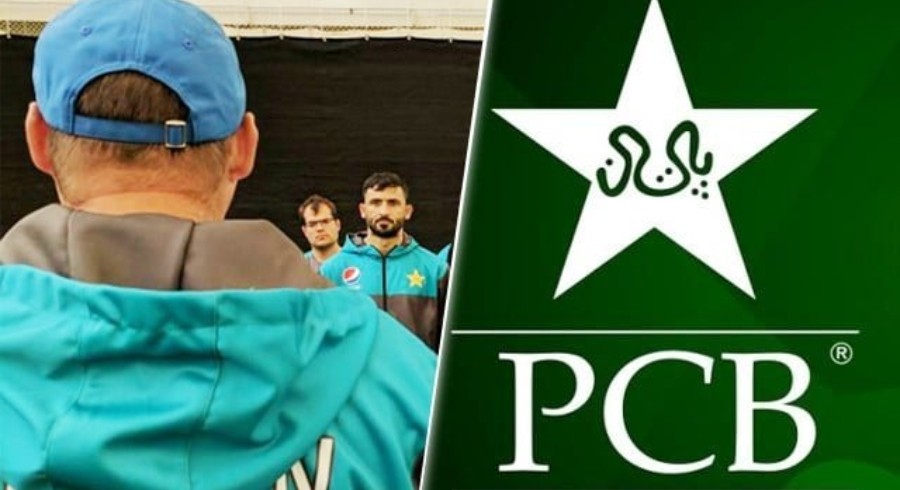
 Sports6 مہینے ago
Sports6 مہینے ago
 Pakistan6 مہینے ago
Pakistan6 مہینے ago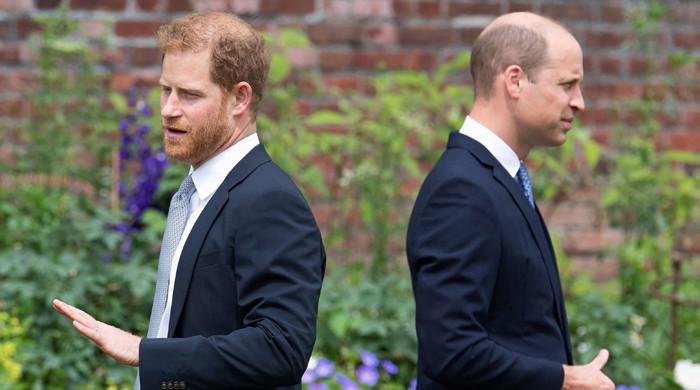
 Entertainment6 مہینے ago
Entertainment6 مہینے ago
 Pakistan6 مہینے ago
Pakistan6 مہینے ago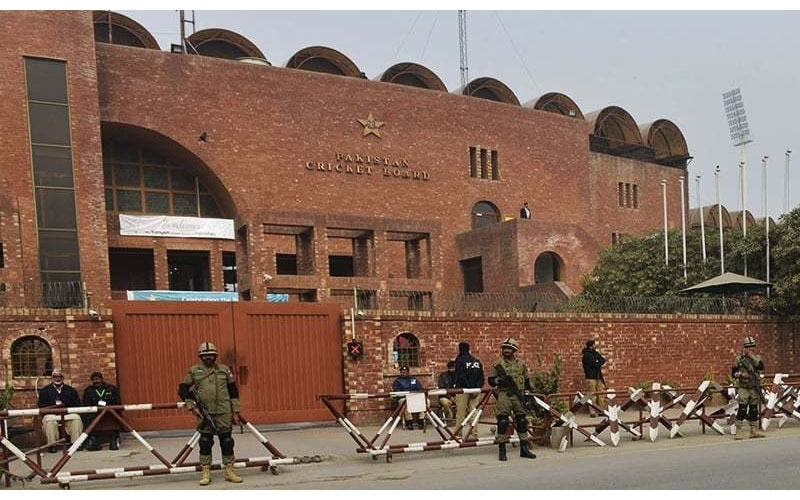
 Sports5 مہینے ago
Sports5 مہینے ago
 Pakistan6 مہینے ago
Pakistan6 مہینے ago
